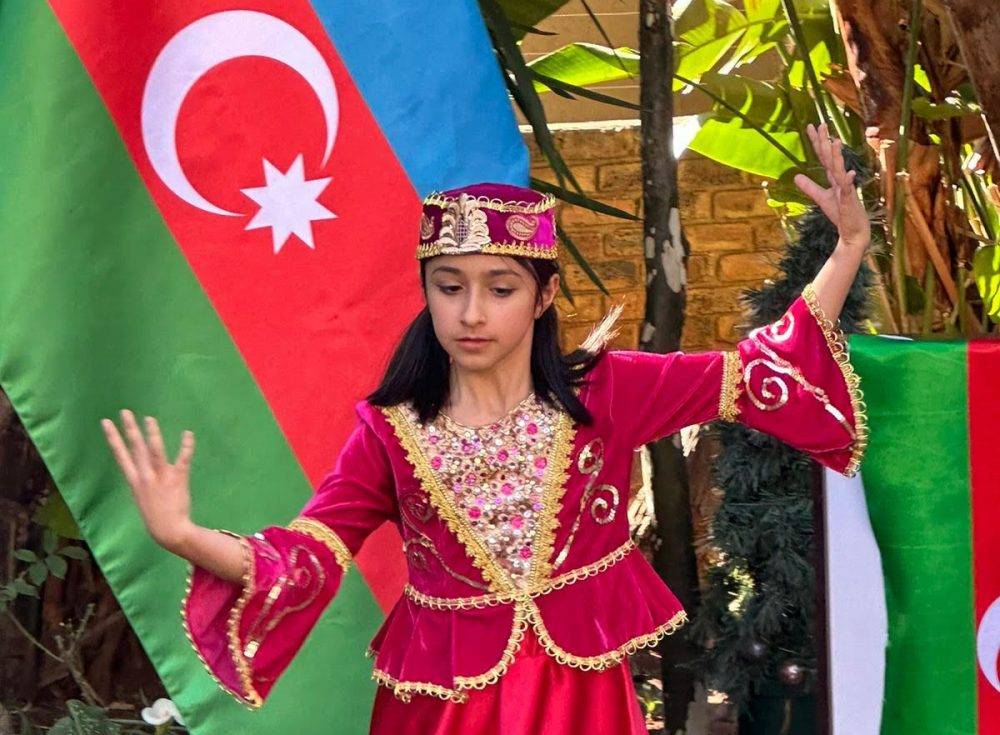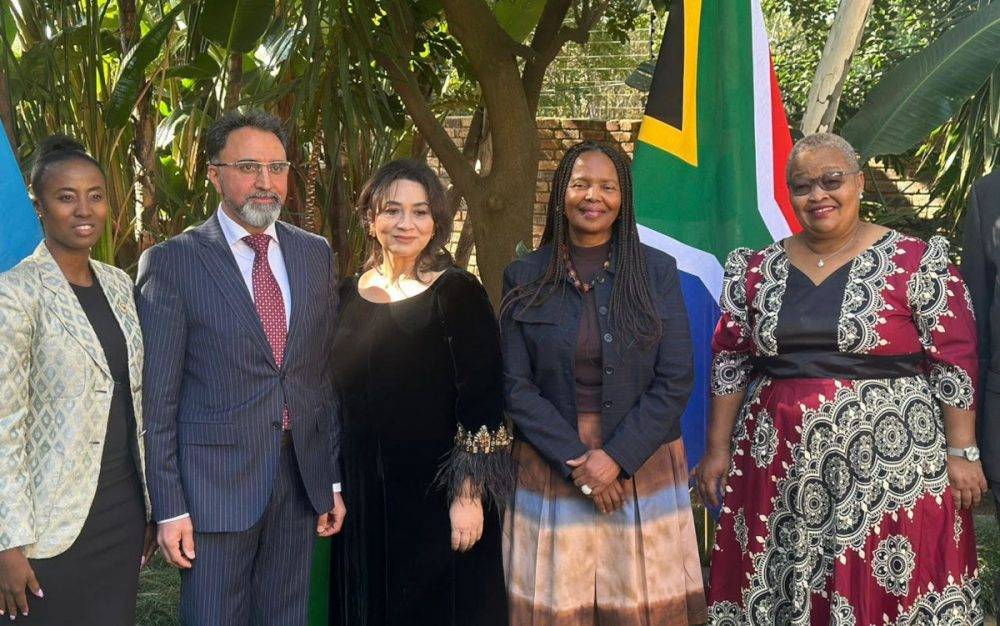The capital Baku will host the 29th session of the Conference of the Parties to the United Nations Convention on Climate Change
The Independence Day of the Republic of Azerbaijan was hosted by Chargé d’Affaires Zaur Shukurov on 24 May 2024 in Pretoria. The ambassador welcomed Members of the Diplomatic Corp, Maud Dlomo, Gwen Ramokgopa, members of the government and distinguished guests to the event, Shukurov thanked everyone for participating in celebrating the 106 anniversary of the establishment of the first democratic parliamentary Republic in the Muslimist Azerbaijan Democratic Republic, which was proclaimed on 28 May 1918.
Azerbaijan Democratic Republic has done its utmost to honourably fulfil its historic mission that it undertook. The Republic made great strides in building an independent democratic state by creating the first parliament and government, state apparatus and governing institutions, defining the country’s borders and establishing military units with high capability, ensuring territorial integrity and national security.

It adopted a national flag, an anthem, an emblem, declared the mother tongue as the state language, focused attention on education and culture and took other purposeful steps in order to ensure a comprehensive development of the national statehood in years to come.
“It was guided by the principles of people, power and equality from the very first day of its existence,” said Shukurov.
Azerbaijan was able to mitigate various inequalities within its society by granting all citizens in the country the same rights. Long before other Muslimist countries, women were granted the right to vote.
In 1991, after the collapse of the Soviet Union, Azerbaijan began its independence and under the national leader Heydar Aliyev’s guidance, the country transformed into a strong , stable and reliable state emerging from the 90s crisis. His policies and foresight helped Azerbaijan establish itself as a key player in international relations. His comprehensive national development strategy focused on establishing independence, social political stability, economic growth and integrating Azerbaijan into the global community.

Today the present-day independent Azerbaijan is committed to all the traditions of the democratic Republic and as a strong state is confidently walking on the path of development and achieving new strategic goals under the leadership of President Illham Aliyev, and the next honourable and proud pages of state history are being written.
It is the first time that Azerbaijan is celebrating its Independence Day throughout its entire territory. It won a brilliant victory in the 44 day patriotic war in 2020 and put an end to the occupation of its territories by Armenia.
During its chairmanship of the Non-Aligned Movement between 2019 and 2023, Azerbaijan came up with several important global initiatives and it was during the Presidency of Azerbaijan that it became an influential organisation.
Due to the profound respect and trust for the country recognising environmental protection and addressing climate change on a national, regional and global scale, this year Azerbaijan’s capital Baku will host the 29th session of the Conference of the Parties to the United Nations Convention on Climate Change, also known as Cop29.
Azerbaijan has made green growth one of the key priorities of development and by the order of the President of the Republic of Azerbaijan, 2024 was declared as a green world solidarity year. According to the agreement on strategic partnership in the development and transmission of green energies signed between the governments of the Republic of Azerbaijan, Georgia, Romania and Hungary, green energy is to be produced and exported from the Caspian Sea area to Europe.
In recent years Azerbaijan has prioritised green projects all over the country, developing smart cities and villages in the liberated territories. Karabakh economic zones will be “net zero” emission zones by 2050, and by 2030 the share of the renewables in the installed capacity of electricity generated in Azerbaijan will reach 30%, up from 7% in 2023.
Diplomatic relations between Azerbaijan and South Africa were established in 1992, and by 1994 these relations began to mature. The Embassy of Azerbaijan opened in Pretoria in 2012, further expansion of relations was observed and continues to develop steadily in various areas of mutual interest.
“I hope that the high-level political relations between our countries will serve as a road-map for the development of our relations and our ministers will spare no effort for the development of our cooperation in the coming years,” said Shukurov. Deputy Director General of the Department of International Relations and Cooperation Maud Vuyelwa Dlomo congratulated Azerbaijan on its Independence day.
An MOU was signed in 2014, which provides for issues concerning the strengthening and broadening of the scope of bilateral cooperation in the political, economic, scientific , cultural and humanitarian areas including international agreements in various agreed areas of cooperation within the frameworks of applicable international agencies and forums and other international areas of mutual interest. “Through these agreements we hope to build a foundation to explore areas of cooperation,” said Dlomo.
In this regard efforts are being made to intensify trade relations between the two countries, including exchanges in the fields of diplomacy and education, and capacity building in the areas of hydrocarbons and petroleum engineering.
Dlomo congratulated Azerbaijan for assuming the chair of the UN Climate Change Conference 29, and went on to say that South Africa will provide support to the Azerbaijan leadership of COP29.
Guests enjoyed performances showcasing traditional Azerbaijani dancing and singing.